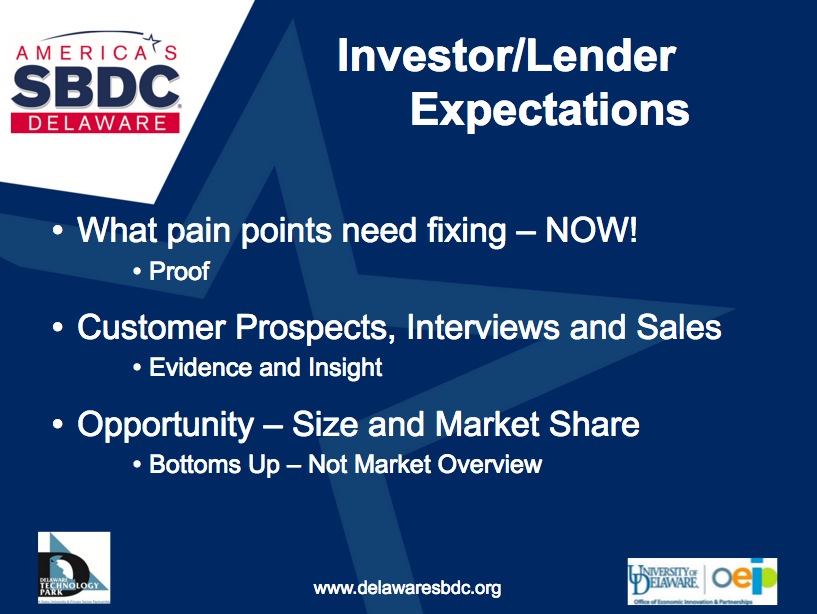Let Mike Bowman be the one to break it to you. Your company? It’s probably not something a venture capital firm would want to invest in. But that doesn’t mean you shouldn’t build it.
“There are so many other ways to capitalize your business,” said Bowman, one of the godfather’s of today’s entrepreneurship, investment and sciences community in Delaware. He’s sure-handed and firm, all substance and no style, with shaggy gray hair and a direct tone. You know where you stand with him.
By title, he’s a classic economic development guy, the associate director of economic innovation and partnerships at the University of Delaware and longtime president of the Delaware Technology Park. He’s a founder of Leading Edge Ventures, a new $10 million seed-stage investment fund focused on mid-Atlantic tech and medical device companies. If you want to be taken seriously in certain Delaware business communities, you probably have shaken his hand.
So if you want to pitch him (or any other small-scale, early-stage investor like him), you better not miss the mark. He says you need to answer for him three questions quickly and clearly:
- What pain points need fixing now?
- What customer prospects do you have, based on interviews and existing sales?
- What is your opportunity to make an impact here?
Bowman shared his perspective as part of the Delaware Innovation Week Entrepreneur Bootcamp, a series of lessons for 30 aspiring or new entrepreneurs held at the Wilmington offices of Young Conaway Stargatt & Taylor, LLP on Rodney Square.
Of course, those are questions any business owner should be able to answer, and most simply aren’t the kind that should be pitching venture capital — a certain kind of investing strategy that demands an expectation of at least a three-times return, on the most modest end of the spectrum (institutional investors will want “the normal bell curve,” said Bowman).
Maybe one in a hundred pitches he hears will get funded, he said — and due diligence is laborious, and the entrepreneur has to give up considerable control.
“Do you want to sell to Google? Do you want to go public? Do you want a business you run for 20 years? Do you want some part-time income?” said Frank DeSantis, the director of the Emerging Enterprise Center, an incubator operated by the New Castle County Chamber of Commerce, at the same event. “There is no wrong answer, but you need to know what you want.”
Knowing will help inform how you might capitalize your business growth. Don’t let the VC hype tell you it’s the only way.
- Existing businesses that want to launch a new product might go the traditional bank lending route — though without much track record, you might end up using your house as collateral, Bowman said.
- There’s the “family, friends and fools” route, as Bowman put it: a reminder that existing networks can be a source of capital but, without the savvy of professional investors, there are risks.
- Crowdfunding is a powerful movement tied to products, though it’s largely a marketing platform.
- Equity crowdfunding, a big variation on the same form, is coming fast thanks to the federal JOBS Act, and so Bowman shouted out the forthcoming Delaware Board of Trade, a kind of local stock exchange that could work with non-accredited investors.
- Build on revenue! No conversation on investment is complete without the obvious: If you can build a revenue-generating business first, and can avoid the necessity for immediate scale, you won’t find a sane investor on the planet who would argue with you on that strategy, to maintain ownership and direction. “These businesses make a lot of sense in the right space,” said Bowman.
Whichever path you take, Bowman says the bottom line is this: Can these financial partners help you build your company? Money for money’s sake “is not worth the effort,” he said. Does this mean that I should move to Silicon Valley to build my tech business so I can be around the most capital sources?
“Not if you’re not ready for it. Get your practical experience here locally at places like 1313 Innovation or coIN Loft,” Bowman said of local coworking spaces with lots of event programming. “Build the best business you can.”
Join the conversation!
Find news, events, jobs and people who share your interests on Technical.ly's open community Slack

Delaware daily roundup: Ladybug Fest illuminates small biz; Hahnemann Hospital's biotech future; intl. politics and a Middletown project

Delaware daily roundup: DE in DC for 'Communities in Action'; diversifying the coffee supply chain; Invista's future

Delaware daily roundup: Where to cowork in 2024; Intertrust Group rebrands; the Visitor Bureau's new website



